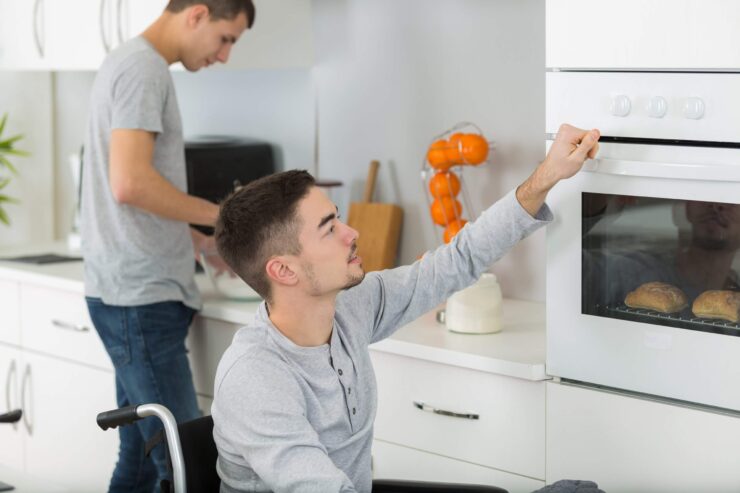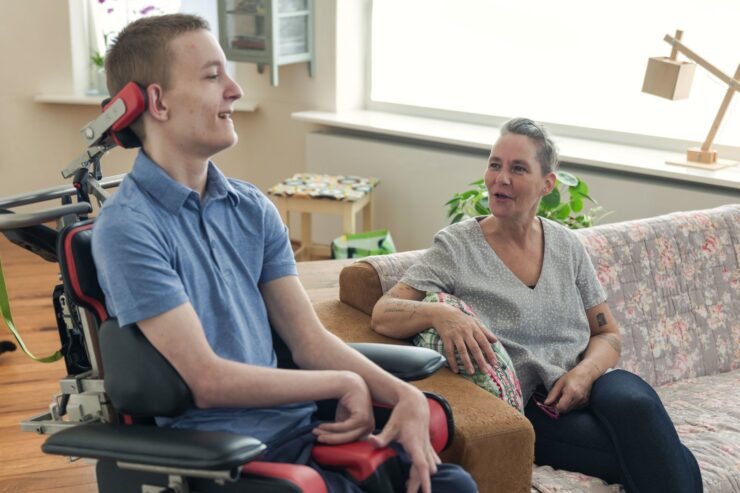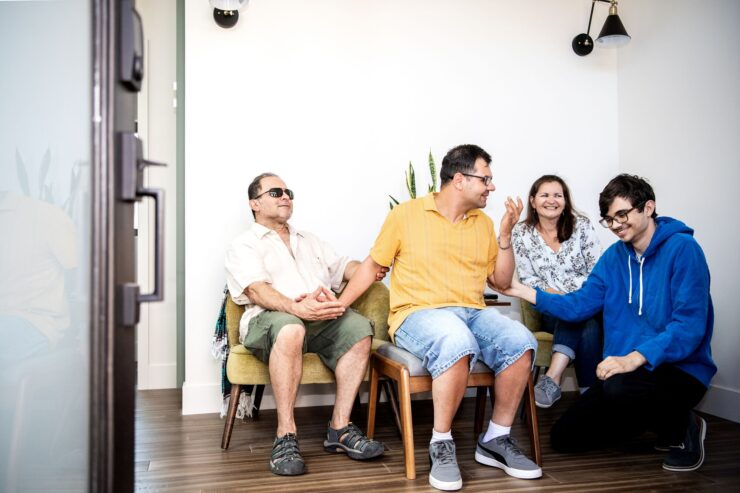Having someone close to you suffer a certain type of disability drastically influences the flow of life not just for them but for the whole family. The time comes to make a decision about what will work best in terms of providing a safe and secure environment for the disabled family member. A lot of people opt for institutions providing care for such people in their facilities. But sometimes, this may not be the best decision for them. If you have been thinking about creating the best possible conditions for your disabled loved one, to keep living the best life possible given the circumstances, then supported independent living may be a better option.
What does this kind of care include, and what are its benefits, read the rest of the article.
Professional help dedicated only to them

With the professional support of nurses, it is not difficult to preserve the quality of life of the disabled and those who need treatment at home! Home care of disabled patients with Blue Wing care professionals in Australia and their experienced staff usually includes maintenance of hygiene, transportation, and care of nutrition, even if they are partially mobile.
Sometimes in hospitals or specialized facilities, nursing staff and other medical staff do not have time to pay attention to each patient individually – while things change drastically when they arrive at their home.
By providing professional help to a disabled person, you automatically enable him to live a normal and less stressful life. With responsibilities such as children and work, many family members find it almost impossible to provide the appropriate type of care for their disabled family members on their own. By hiring a personal, professional caregiving service – you are doing them the best service.
The possibility of retaining old life habits
Did you know that disabled people are afraid of moving to specialized facilities? The reason for this lies in the need for them to give up their independence in the home and adapt to the needs of a large number of other people.
According to one study, nearly 90% of want to age in their own home. Staying at home is much more meaningful than going to a professional institution because they remain engaged in their typical home activities, surrounded by family and friends.
Why is it important for the disabled to stay in the comfort of their own home?

It is of crucial importance to create an opportunity for each person to spend their life with dignity and as independently as possible in their personal space, where they feel safe and peaceful.
In this way, self-confidence is encouraged and personal morale is raised. On the contrary, the institutionalization of the disabled usually leads to a decline in the emotional functions of the personality, and, mental health is also rapidly impaired.
With the hiring of home help and home care for the disabled or sick, your loved ones retain control and the ability to lead a significantly independent life in aspects such as preparing food, visiting neighbors, or playing with grandchildren and pets.
Closeness to family and comfort in difficult times

For many people who are disabled or struggling with some form of illness, the fact that they are at home, surrounded by their family and friends greatly improves their recovery and gives them strength.
Many studies support the fact that people with health problems recover much faster in their own homes because autosuggestion helps them think more clearly and thus it is easier to achieve psychosomatic changes.
Family is an excellent source of emotional support for the disabled. Knowing that your loved one is in the safe environment of their home, you too can lead a more peaceful life.
Why is a specialized institution sometimes not the right choice?

One of the basic “disadvantages” of such institutions, or a similar (health) institution is that, almost as a rule, they do not provide the same level of independence as our own home – in which we grew up and in which we know every centimeter.
Most of the rooms in these centers are not private, but people have to share them with someone. Depending on the level of social development, this can also be an advantage because people have company for conversation and entertainment.
In addition, the price of accommodation in these institutions can be extremely high, and most people can hardly cover all the costs of stay, and often additional payments from the nearest relatives or social services are necessary.
Final word
We advise you that when making a decision whether to choose a specialized home or home care for a very sick or disabled person, you should take a good look at the extent to which the family member who needs help is independent, i.e. how active and healthy he really is.
If your parent, grandmother, or grandfather does not have any serious chronic diseases, if he is not demented and immobile, but only needs help with daily household chores and purchases – then home care for the sick is sufficient.
And when is it most advisable to place a disabled person in an institution?
On the other hand, the moments when you have no choice but to provide a disabled or old person with professional care at a specialized center are also moments when the person suffers from serious illnesses that require constant care.
These centers also have professional therapists, physiotherapists, and psychologists who work with the patients all the time. For example, if a person has dementia, Parkinson’s, Alzheimer’s, or some other serious disease, the home has specially qualified staff for the care of such health conditions.
In any case, the final decision should be made in consultation with a doctor, who can best help you understand what level of service is necessary for a disabled person in your family.

